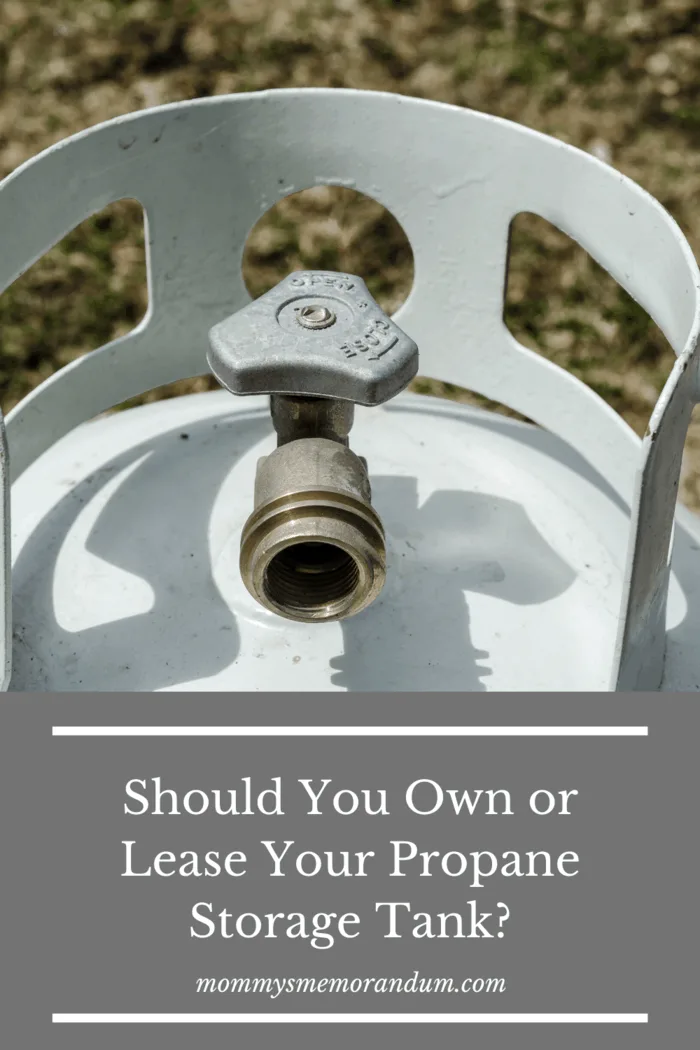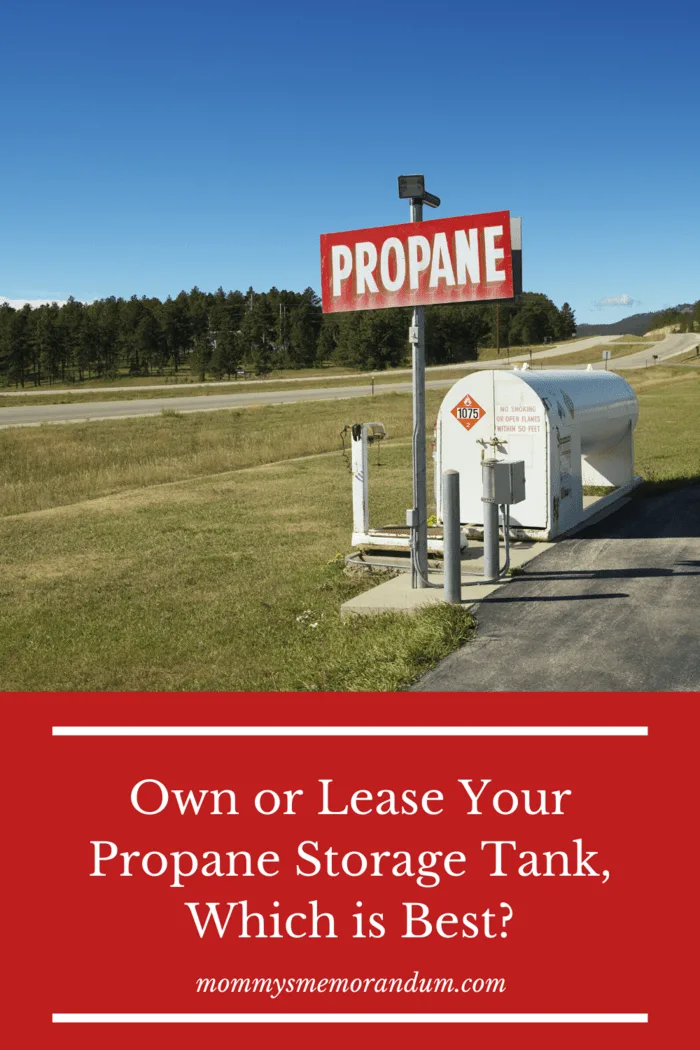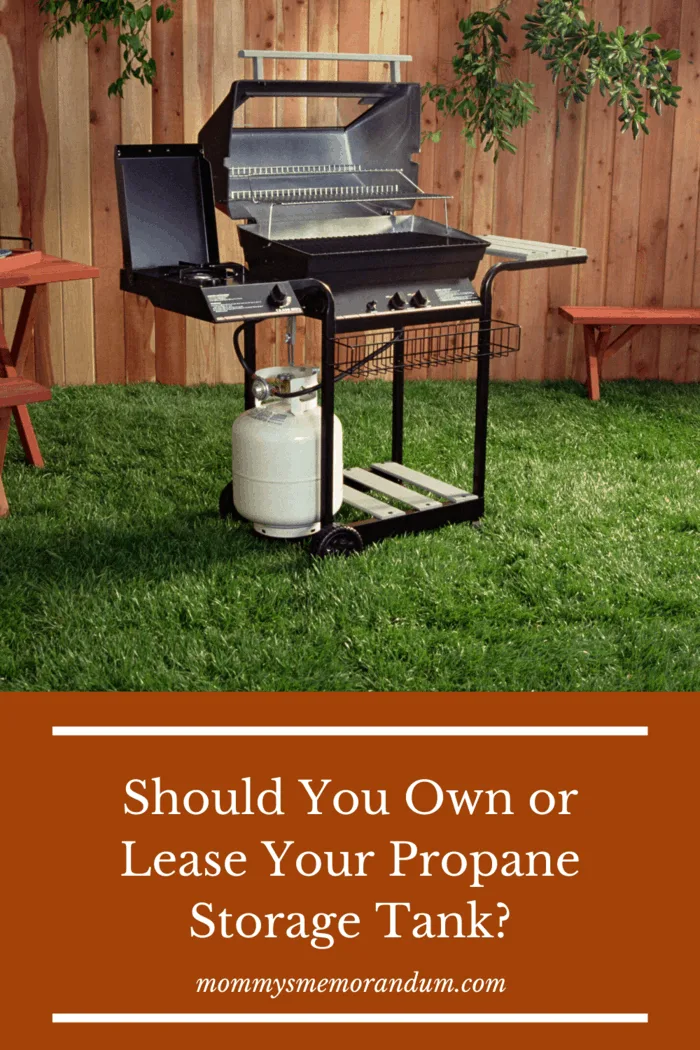According to Sciencing.com, propane as an energy source is a clean-burning, environmentally friendly fuel.
It should be noted that propane is a nonrenewable source of energy.
We get propane from petroleum and natural gas.
In 2014, it was reported by The Guardian that a team of scientists at London’s Imperial College successfully demonstrated propane could be made from glucose using a genetically engineered version of the bacterium E Coli.
Some people are even retrofitting their cars to run on propane to reduce their contribution to greenhouse gases.
Perhaps, for this reason, you’ve decided to switch to propane as an energy source for your home.
Now you’re wondering about the pros and cons of buying vs. renting propane tanks.
The correct answer will depend on your particular situation.
Read on to learn what you should take into consideration.
Propane is typically the choice for heating homes in areas where natural gas isn’t piped.
Depending on the size of the tank, installation needs to be considered and who refuels the propane tank.
Should You Own or Lease Your Propane Storage Tank?
Price
The upfront investment of buying a propane tank is higher than renting.
The average 1,500-square-foot home that uses propane for heating and all appliances will typically use a 500-gallon tank.
For a 500-gallon tank, you’re looking at about $1,500 (homeadvisor.com) though pricing varies by location.
That jumps to $2,500 if you want to buy a 1,000-gallon tank.
Sometimes you can get financing for the tank and necessary parts for installation such as piping, regulators, and the like.
Keep in mind that a propane tank is not generally an investment that you’ll recoup when selling your home.
If you plan to live in the home for a short time, it may not be worth the investment.
Renting is significantly cheaper upfront, but you have to pay a regular fee.
Prices will vary and are based on the size of the propane tank you want to rent.
Use Kaufmann Gas‘s propane guide to figure out exactly which size propane tank you should buy for your particular home needs.

Installation
When you purchase your own tank, you’ll have to pay for the installation as well.
This is not considered a good DIY project, so you’ll need to hire a professional to handle it.
Many suppliers won’t even sell you a tank for self-installation unless you are licensed yourself.
When renting a tank, the installation is included in your agreement.
The company you’re renting from will handle the whole process.
Propane Tanks can be installed above ground, with distance from a home or underground requirements.
Above-ground installation is typically cheaper than underground propane tank installation.
The installation cost varies based on the type of tank, location, and size.
For above-ground installation, larger tanks may require a concrete pad, sometimes reinforced with mesh.
Usually, a gas line trench is dug from the tank to the home.

Maintenance
As with anything you buy, you become responsible for upkeep and repairs.
Propane tanks are solid and can last for 20 or even 30 years.
However, they expire after 12 years, and you have to get them recertified to continue using them.
After the 12-year mark, you have to get them recertified every five years.
You cannot get them refilled without this certification.
When you rent a tank, the company will handle all maintenance and repairs and take care of the certifications as necessary.
Propane Supplier
When you buy your own tank, you can buy your propane from whoever you’d like.
This can be an advantage in an area where there is stiff competition.
You can take advantage of sales and promotions as the companies offer them.
Some propane companies allow you to rent or lease the tanks after initial installation at no cost, provided your purchase your liquid propane from them.
Other companies may rent them to you for a low fee annually.
When you rent a tank, you may agree to purchase your propane from that company.
However, keep in mind that propane companies tend to offer special rates to their tank renters instead of gouging customers.

Buying vs. Renting Propane Tanks
There you have it, the pros and cons of buying vs. renting propane tanks.
Most people will benefit from renting their tanks.
They have to keep paying the fees, but the convenience is often worth it.
Others won’t mind doing their maintenance and prefer the freedom to buy their gas from whomever they please.
Plus, all they have to pay for is gas.
Once you consider the things mentioned above, you’ll have the answer to whether you should own or lease your propane storage tank.
Looking for more great home tips! Feel free to check out more articles on our blog!
